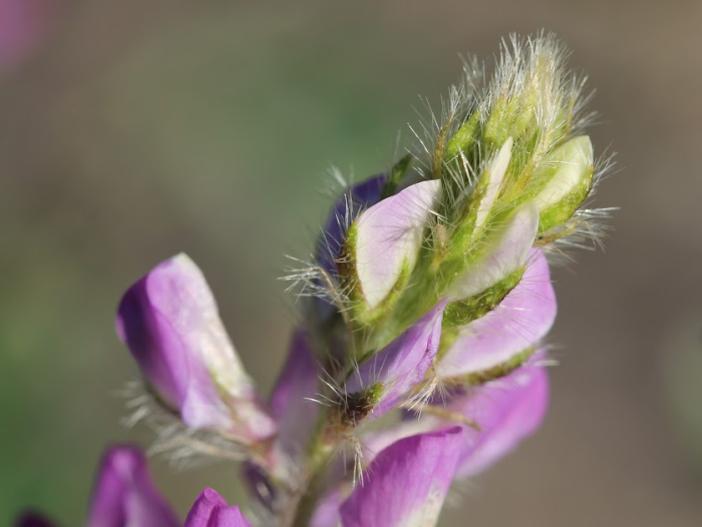Stinging Annual Lupine
(Lupinus hirsutissimus)
Stinging Annual Lupine (Lupinus hirsutissimus)
/
/

Photo by Easyscape
CC BY-SA 4.0
Image By:
Photo by Easyscape
Recorded By:
Copyright:
CC BY-SA 4.0
Copyright Notice:
http://creativecommons.org/licenses/by-sa/4.0/ | CC BY-SA 4.0












































































Estimated Native Range
Summary
Lupinus hirsutissimus, commonly known as Stinging Annual Lupine, is an annual herb native to the chaparral and coastal sage scrub of California and the desert areas of Northwest Mexico. It typically grows from 20 centimeters (7.9 inches) to one meter in height and may exceed one meter in habitats recovering from wildfire. This species is characterized by its stem and herbage coated in long, stiff hairs that can cause irritation to the skin upon contact. The palmate leaves consist of 5 to 8 leaflets, each up to 5 centimeters (2.0 inches) long and 1 to 2 centimeters wide. The inflorescence bears several dark pink flowers, each 1 to 2 centimeters long, with a yellowish to pinkish spot on the banner, and they are not typically arranged in whorls. The fruit is a hairy legume pod up to 4 centimeters (1.6 inches) long.
Stinging Annual Lupine is valued for its vibrant flowers, which add color to wildflower gardens and restoration projects. It is drought-tolerant, making it suitable for xeriscaping and gardens with very low water availability. In cultivation, it thrives in full sun and well-drained soils. While it is not commonly used in formal garden settings due to its stinging hairs, it is beneficial for native plantings and habitat restoration. Care should be taken when handling this plant to avoid skin irritation.CC BY-SA 4.0
Stinging Annual Lupine is valued for its vibrant flowers, which add color to wildflower gardens and restoration projects. It is drought-tolerant, making it suitable for xeriscaping and gardens with very low water availability. In cultivation, it thrives in full sun and well-drained soils. While it is not commonly used in formal garden settings due to its stinging hairs, it is beneficial for native plantings and habitat restoration. Care should be taken when handling this plant to avoid skin irritation.CC BY-SA 4.0
Plant Description
- Plant Type: Herb
- Height: 1-3 feet
- Width: 2-3 feet
- Growth Rate: Moderate
- Flower Color: Pink, Purple
- Flowering Season: Spring, Winter
- Leaf Retention:
Growth Requirements
- Sun: Full Sun
- Water: Very Low
- Drainage: Fast
Common Uses
Bee Garden, Bird Garden, Butterfly Garden, Deer Resistant, Drought Tolerant, Hummingbird Garden, Low Maintenance, Rabbit Resistant, Showy Flowers
Natural Habitat
Native to the chaparral, coastal sage scrub of California, and desert areas of Northwest Mexico
Other Names
Common Names: Stinging Lupine
Scientific Names: , Lupinus hirsutissimus,
GBIF Accepted Name: Lupinus hirsutissimus Benth.